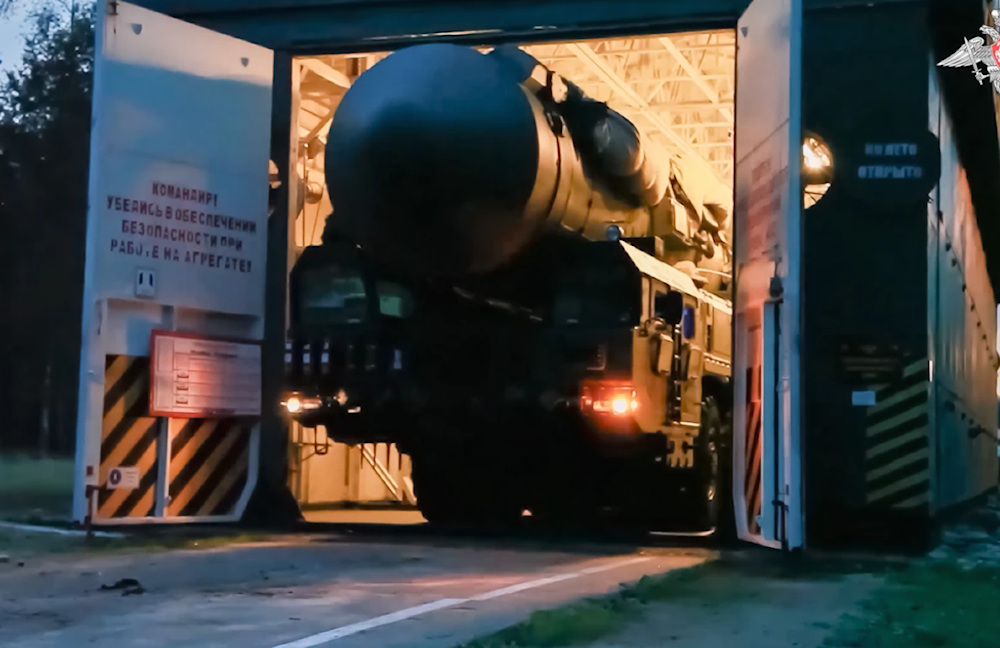US considering adjusting nuclear posture: Pentagon
Acting US Assistant Secretary of Defense for Space Policy Vipin Narang stated that "Absent a change in the nuclear trajectories of the PRC [China], Russia, and North Korea, we may reach a point where a change in the size or posture of our current deployed forces is necessary."
-

In a photo released by Russian Defense Ministry Press Service on July 22, 2024, a Yars intercontinental ballistic missile launcher rolls from a hangar during a military exercise in Russia (AP)
On Thursday, Acting US Assistant Secretary of Defense for Space Policy Vipin Narang indicated that the United States might need to reassess its nuclear arsenal and posture if the nuclear developments of Russia, China, and North Korea do not change.
Narang said at an event hosted by the Center for Strategic and International Studies (CSIS) that "Absent a change in the nuclear trajectories of the PRC [China], Russia, and North Korea, we may reach a point where a change in the size or posture of our current deployed forces is necessary," stating that there is now no need to increase the US nuclear stockpile, but modifications to the number of deployed capabilities may be required if enemies continue on their path.
The acting assistant secretary also divulged that the US will continue to adhere to the New START restrictions for the remainder of the treaty as long as it believes Russia is doing the same.
Narang revealed that this will continue to be the case "as long as we assess that Russia continues to do so."
The New START deal between Russia and the US will expire in 2026.
Dmitry Medvedev, Deputy Chairman of the Russian Security Council, stated that the pact can only be extended if the United States stops selling weapons to Ukraine and prevents the nation from joining NATO.
Russia may end moratorium on intermediate-range nuclear forces: Putin
Moscow will no longer adhere to a moratorium on deploying medium- and short-range strike weapons if the United States deploys weapons in Germany, Russian President Vladimir Putin stated, on Sunday, during the Main Naval Parade on Navy Day in St. Petersburg.
This comes in response to the Pentagon's announcement on July 10 that starting in 2026, the US would begin periodic deployments of long-range weapons in Germany, planning for their future permanent stationing. This includes SM-6, Tomahawk, and developmental hypersonic missiles.
"If the US implements such plans, we will consider ourselves free from the previously assumed unilateral moratorium on the deployment of medium- and shorter-range strike weapons, including increasing the capabilities of the coastal troops of our Navy," Putin stressed.
The Russian president emphasized that "important Russian state and military administration facilities, our administrative and industrial centers and defense infrastructure will be within its [US] reach."
Elsewhere in his remarks, he vowed that Russia will continue to strengthen its naval forces.
"We will continue to increase the support of surface and submarine forces, naval aviation, equip ships with high-tech, next-generation systems, and hypersonic missile complexes," Putin stressed.

 3 Min Read
3 Min Read








